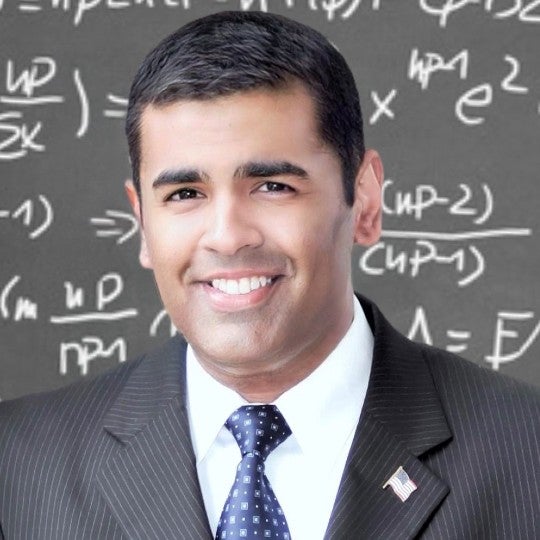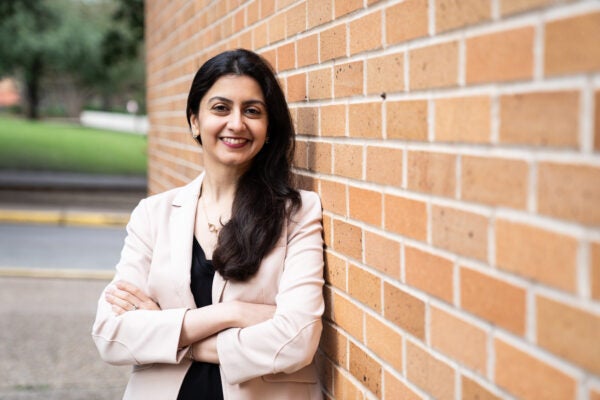Data Doesn’t Stand on Its Own
Teaching Fellow Sury guides students in a critical competency: weaving research into persuasive stories

Whether discussing the Federal Reserve for a local television audience or submitting an opinion article for national publication, Michael Sury lives out his belief in the power of a data-driven argument.
Sury, a Texas McCombs associate professor of practice in finance and Faculty Honor Roll regular, has developed an innovative method for teaching data-driven decision-making and persuasion, which he introduced as part of the inaugural McCombs Teaching Fellows cohort.
The innovation grew from experience gained in his early career in technology development at the Microelectronics and Computer Technology Corporation, Lockheed Martin, and IBM. After graduate school at the University of Chicago, Sury worked in the financial services industry before launching a family office to manage investments.
Business visits to Texas and UT interactions led to an invitation to teach a course at McCombs in 2017. Within a year, he transitioned into teaching full time.
“I’m proud that I have this sort of dual background. I think students appreciate it too,” says Sury, who also serves as managing director of the Center for Analytics and Transformative Technologies at UT. He teaches corporate valuation to upper-division undergraduates and graduate students in the MSF and MSBA programs. At the graduate level, he teaches investment theory, empirical finance principles, and analytic finance/machine learning.
At all levels, he centers his classes on vital persuasive skills.
“Our role in business is to persuade people to take action,” he says. “We can do certain independent analyses, but at some point, we have to take a stand.”
Data literacy and storytelling
Sury challenges students to select and evaluate data from more than one perspective. For example, he assigns a series of transactions and splits students into two teams. Team A might be selling a company, while Team B is a potential buyer.
“They could choose all of the data or some of the data, but they have to craft a persuasive argument for one side or the other. It’s almost like setting up a debate,” he explains.
In class, teams argue positions and defend counterpoints. Other classmates join in the critiques. The process teaches well beyond a typical one-way, one-answer textbook case study or a mechanical formula output, Sury says.
“The real world just isn’t like that. There might be multiple right ways and certainly multiple wrong ways,” he stresses. “We want to avoid the wrong ways and look at the right ways that support our particular position. That is a major business skill.”
He also sees students reinforcing valued communication skills like presenting in front of a group and thinking under pressure.
At the graduate level, students might use machine learning to design investment strategies and present each step to classmates for cross-examination.
Peers quickly relate to pain points, Sury says. “Either they learn to defend their analysis properly, or they find holes in their arguments that they have to fix for the next round of presentations.”
“We’re not spoon-fed data in the real world,”
— Michael Sury, McCombs Teaching Fellow, 2023-2024
The process is working
In course surveys, students describe the unusual methodology as uniquely challenging, requiring deep understanding and constant preparedness. They note the adversarial format pushes them to anticipate counterarguments, refine their work, and engage more critically with the material.
Many found the experience directly applicable beyond the classroom, noting its value in job interviews and real-world communication. The emphasis on peer persuasion and rigorous preparation sharpened their professional skills in unexpected ways.
“This is the first class where I’ve had to be ‘on my toes’ and really know the work I’m doing inside and out,” one student wrote.
Lessons live on
As a Teaching Fellow, Sury shared his work during a faculty retreat and is hopeful that his experience will encourage his colleagues, much as he was encouraged by cohort member Bill Peterson’s workshop about simulated leadership meetings (SLM).
“While I don’t run it exactly the way he does, it planted seeds of how I might want to run something like that in my courses,” he says.
Sury, who received the Hank and Mary Harkins Foundation Award for Effective Teaching in Undergraduate Classes in 2025, praises the collaborative approach and deep reach of the McCombs Office of Instructional Innovation (MOII).
“Programs like this encourage innovation, but it also encourages sharing so that other faculty members can apply it to their work,” he says. “That’s extremely valuable.”
Next up for Sury is his appointment as a Provost’s Teaching Fellow at the University level. His goal is to use his finance classes as a test bed to pilot reforms across multiple disciplines, raising the bar for academic rigor and long-term student success.
“One of the strengths of Michael’s project was that he was focusing on problems faced across disciplines. We’re glad to see a project launched in our first cohort expand across campus,” says Brandon Campitelli, assistant director of MOII.
“The Provost’s Teaching Fellow program may get a wider audience,” Sury says. “But it all started at McCombs.”
Story by Sandra Kleinsasser
About this Post
Share:


